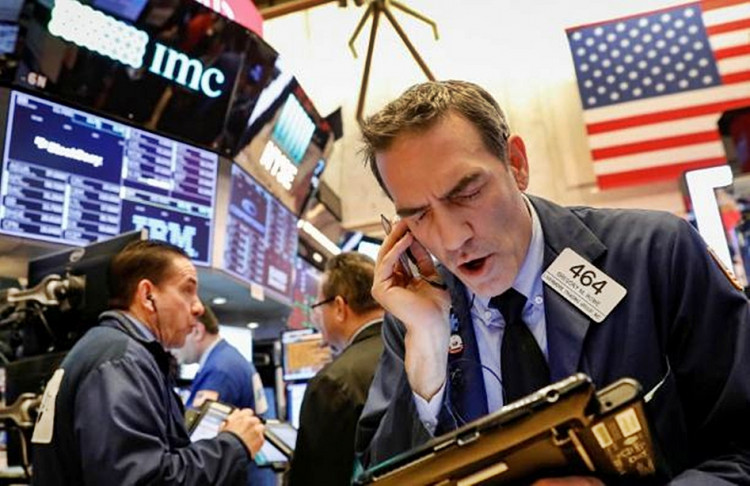News the Trump administration will absolutely impose the announced new tariff hikes on Chinese imports by Jan. 1, 2019 sent U.S. equity and markets crashing lower Monday.
The new sell-off also confirms speculation Trump's trade war with the world is the biggest factor in razing investor sentiment and blunting market growth worldwide. Media reports, however, hinted that Trump will make his final decision after his meeting with Chinese president Xi Jinping next month.
Yesterday, the Dow Jones Industrial Average oscillated between a gain of 352 points and a loss of 566 before closing down 245.39 points, or 1 percent, to 24,442.92.
The S&P 500, the main benchmark for the U.S. stock market, fell 17.44 points, or 0.7 percent, to 2,641.25. It closed in correction territory, down 10 percent from its recent high.
The NASDAQ composite, which is heavily weighted with technology stocks, shed 116.92 points, or 1.6 percent, to 7,050.29. The Russell 2000 index of smaller-company stocks lost 6.51 points, or 0.4 percent, to 1,447.31.
Huge losses hit technology and internet companies, industrials and retailers, continuing the unnerving rounds of volatility that marked trading last week. Microsoft shed 2.9 percent to $103.85. Alphabet, Google's parent company, dropped 4.5 percent to $1,034.73. Amazon.com yielded another 6.3 percent to $1,538.88.
It took a huge hit on Oct. 26 after it reported weak sales and announced a lower-than-expected revenue estimate for the quarter that includes the holiday shopping season. Amazon's stock traded above $2,000 a share in early September and has fallen 24.5 percent since.
Monday's losses come after a 3 percent drop in the Dow last week, which was highlighted by a drop of nearly 300 points on Friday. The S&P 500 and NASDAQ dropped 3.9 percent and 3.8 percent the same day.
The S&P 500 has fallen a surprising 9.4 percent in October and is on track for its worst monthly loss since February 2009. Analysts pointed out this event took place right before U.S. markets hit their lowest point during the Great Recession of 2008. Stocks have plunged since early October while trading has been especially volatile since last week.
More ominously, the S&P 500 has fallen 9.9 percent from its latest record high on Sept. 20. The NASDAQ has plunged 13 percent from its record high on Aug. 29.
Analysts pointed out the effects of higher U.S. tariffs will be especially severe for technology companies, which make many of their products in China. Also to be hard hit will be industrial companies that are already paying higher prices for metals.
Higher U.S. tariffs on Chinese imports will also slow global economic growth and increase inflation in both countries. Investors now have to contend with the reality that Trump's irrational behavior will prevent him from attaining a win-win deal with Xi, and are acting accordingly by fleeing equities for safer havens such as bonds and gold.





